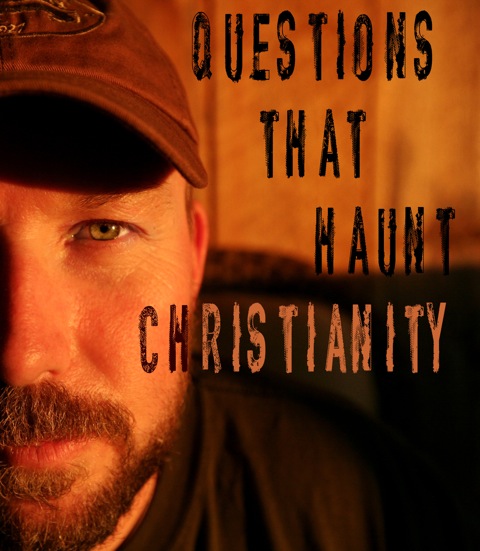In Part One of this Question That Haunts Christianity, I wrote about God as creator. Today I turn my attention to the Incarnation as something that displays God’s ontological uniqueness. As a reminder, the question came from reader Pat, and it concerns a contentious post by Roger Olson:
Last week, I read Roger Olson’s attack on process theology, and then I saw your tweet on the controversy:
@Toy_Adams @theBoSanders I’m with Olson on God’s ontological uniqueness and voluntary self-limitation, but he’s selling process short.
— Tony Jones (@jonestony) December 6, 2013
I, too, am attracted to relational and process theologies, but I’ve struggled with the feeling I get from process that God is not really very special, that God’s not unique. That’s why your tweet got my attention, so my question is this: Is God ontologically unique from the rest of creation?
For Christians, the incarnation of some aspect of God’s divinity in the person of Jesus of Nazareth has always been of utmost importance. The implications of this incarnation affect nearly every other aspect of Christian doctrine, not least the meaning of Jesus’ death on the cross (about which I am currently writing a book).
But this post concerns not the outworkings of the incarnation, and not even the nature of the incarnation, but the very meaning of the incarnation. (For lots of great posts on the incarnation, see this page.)
Here’s my thesis: If God is not ontologically distinct from creation, then the incarnation is meaningless.
Since the earliest days of the church, the incarnation has been understood as a bridge between the ineffable and the worldly. Here’s John Chrysostom in the first Christmas sermon ever preached, in 386:
Nature here rested, while the Will of God labored. O ineffable grace! The Only Begotten, Who is before all ages, Who cannot be touched or be perceived, Who is simple, without body, has now put on my body, that is visible and liable to corruption. For what reason? That coming amongst us he may teach us, and teaching, lead us by the hand to the things that men cannot see. For since men believe that the eyes are more trustworthy than the ears, they doubt of that which they do not see, and so He has deigned to show Himself in bodily presence, that He may remove all doubt.
And here, centuries later, is On Being host Krista Tippett in a post on why she has basically given up on almost all aspects of Christmas, except one:
Here’s what I take seriously. There is something audacious and mysterious and reality-affirming in the assertion that has stayed alive for two thousand years that God took on eyes and ears and hands and feet, hunger and tears and laughter and the flu, joy and pain and gratitude and our terrible, redemptive human need for each other. It’s not provable, but it’s profoundly humanizing and concretely and spiritually exacting. And it’s no less rational — no more crazy — than economic and political myths to which we routinely deliver over our fates in this culture, to our individual and collective detriment.
In the 1,627 years between the composition of those words, Christians have affirmed something about the incarnation — that in the incarnation, something happened that hadn’t happened before. That in the incarnation, the union of human and divine was realized.
Some readers will worry that this implies a distance between God and human, a chasm that brings bad memories of tracts and fear-based sermons and altar calls. But one need not retreat to the mistaken doctrine of original sin to acknowledge a gap between the human and the divine. In fact, let me suggest that some of my peers have overreacted of late. They’ve brought God so low as to erase any distinction between Creator and creation. While others — distressingly many, in my opinion — have killed God altogether.
Yet there are those of us, like John Chyrsostom and Krista Tippett who hold that something unique happened on that humble morning, somewhere in Palestine, sometime during the Syrian governorship of Quirinius. I count myself among those who find this event to be full of messianic hope and eschatological promise.
For it’s in the very distinctiveness of God that the incarnation has its power.
Merry Christmas.
See all of the past questions and answers here, or buy the ebook by clicking below. Submit your own question here.









